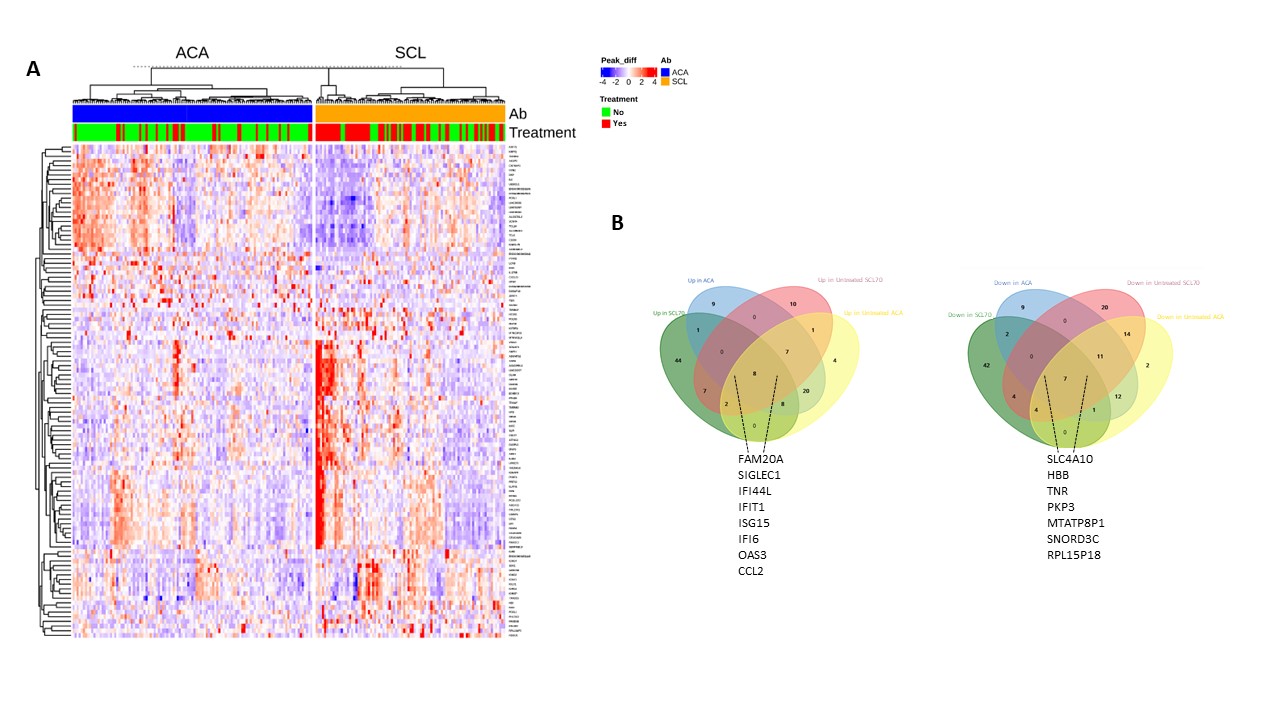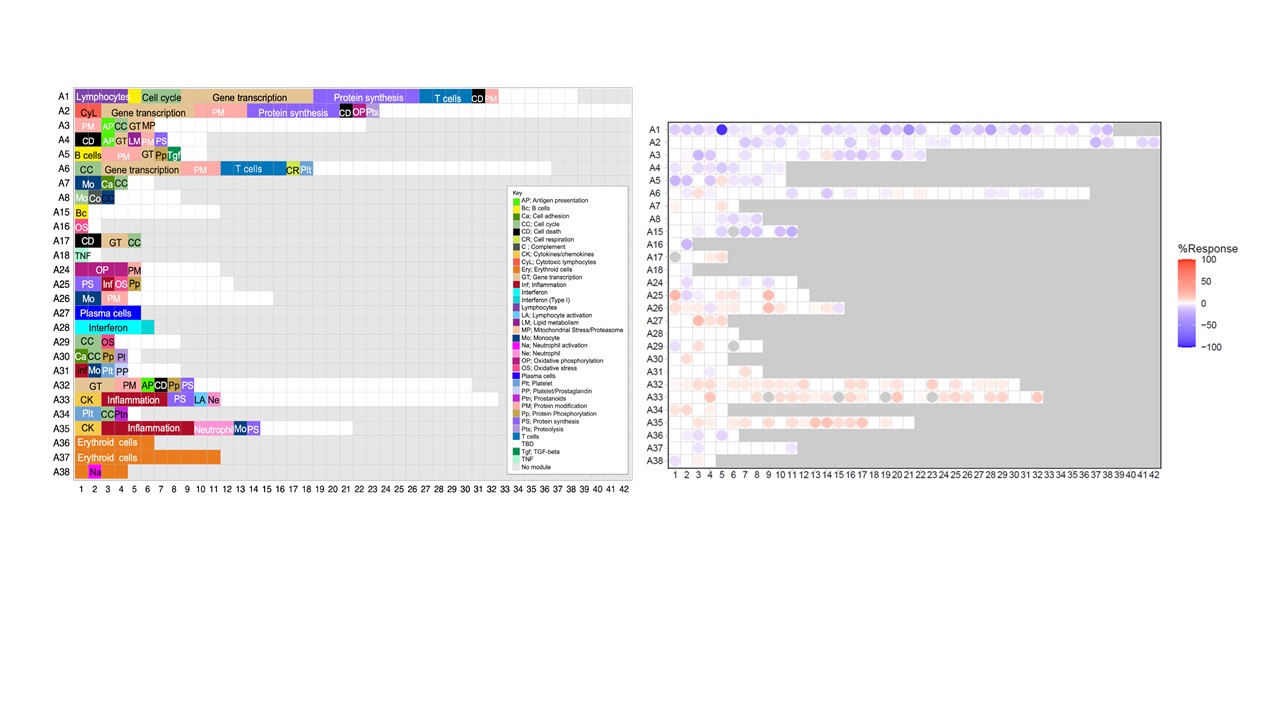Session Information
Date: Sunday, November 17, 2024
Title: Systemic Sclerosis & Related Disorders – Basic Science Poster I
Session Type: Poster Session B
Session Time: 10:30AM-12:30PM
Background/Purpose: Systemic sclerosis is a heterogeneous disease, complicating its management. Its complexity and the insufficiency of clinical manifestations alone to delineate homogeneous patient groups further challenge this task. However, autoantibodies could serve as relevant markers for the pathophysiological mechanisms driving the disease. Identifying specific immunological mechanisms based on patients’ serological statuses might facilitate a deeper understanding of the diversity of the disease.
Methods: A cohort of 206 systemic sclerosis patients enrolled in the PRECISESADS cross-sectional study was examined. Patients were stratified based on their anti-centromere (ACA) and anti-SCL70 (SCL70) antibody statuses. Comprehensive omics analyses, including transcriptomic, flow cytometric, cytokine, and metabolomic data, were analyzed to characterize the differences between these patient groups.
Results: Patients with SCL70 antibodies showed severe clinical features such as diffuse cutaneous sclerosis and pulmonary fibrosis, and were biologically distinguished by unique transcriptomic profiles. They exhibit a pro-inflammatory and fibrotic biologic signature associated with impaired tissue remodeling and increased carnitine metabolism. Conversely, ACA-positive patients exhibited an immunomodulation and tissue homeostasis signature and increased phospholipid metabolism.
Conclusion: Systemic sclerosis patients display varying biological profiles based on their serological status. The findings highlight the potential utility of serological status as a discriminating factor in disease severity and suggest its relevance in tailoring treatment strategies and future research directions.
To cite this abstract in AMA style:
ROUVIERE B, Le dantec C, Bettacchioli E, Beretta L, Cao C, Jamin C, Pers J, Foulquier N, Kerick M, Martin J, Alarcon-Riquelme M, de Moreuil C, Cornec D, Hillion S. Stratification According to Autoantibody Status in Systemic Sclerosis Reveals Distinct Molecular Signatures [abstract]. Arthritis Rheumatol. 2024; 76 (suppl 9). https://acrabstracts.org/abstract/stratification-according-to-autoantibody-status-in-systemic-sclerosis-reveals-distinct-molecular-signatures/. Accessed .« Back to ACR Convergence 2024
ACR Meeting Abstracts - https://acrabstracts.org/abstract/stratification-according-to-autoantibody-status-in-systemic-sclerosis-reveals-distinct-molecular-signatures/


